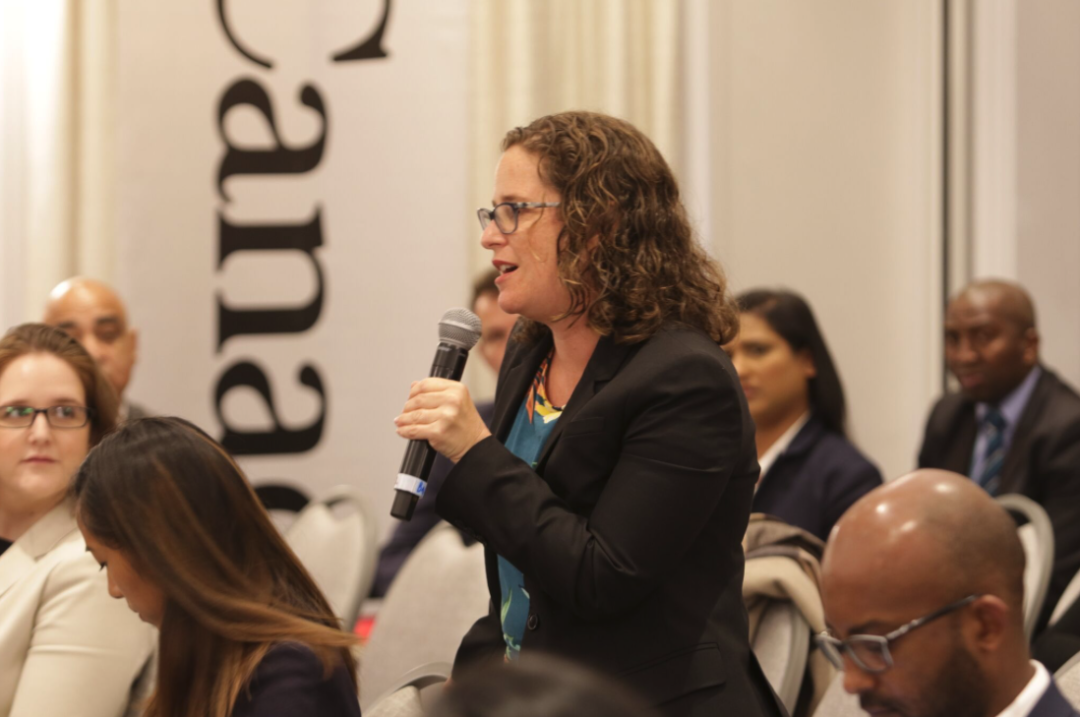Remaining an ICC member would not mean South Africa agrees with every action the court takes or every aspect of the court’s functioning.
Article by Elise Keppler, published on 10 September 2018 in the Mail&Guardian.
At a Cape Town symposium on the future of international justice on August 29, it was good to see South Africa’s justice minister Michael Masutha in attendance, offering detailed remarks and answering questions on South Africa’s position on the International Criminal Court (ICC).
What he had to say was more disappointing.
The meeting was organised by the Wayamo Foundation and the high-level Africa Group on Justice and Accountability, which includes the leading South Africa jurists Richard Goldstone and Navi Pillay, and other eminent people from across the continent.
READ MORE: A plan for South Africa to stay in the ICC
Minister Masutha staunchly defended South Africa’s withdrawal from the International Criminal Court, the only global court of last resort for victims of genocide, war crimes and crimes against humanity. He spoke of a decision not taken lightly and of perceived conflicting international obligations with the African Union, and a concern over the court’s focus to date on crimes in Africa.
The minister pledged that South Africa will remain committed to justice for victims of atrocities and will not be a safe haven for war criminals. But the primary reason he articulated for South Africa withdrawing from the court – to ensure that people subject to ICC arrest warrants can visit the country with guarantees of immunity from surrender – cannot be reconciled with these commitments.
It is not too late for the South African government to change course and remain a member of the ICC. Such a move would increase the country’s global standing and demonstrate a commitment to victims of the gravest crimes everywhere. It would also be consistent with South Africa’s support for international frameworks to ensure respect for rights, most recently reflected in its drive for a legally binding global instrument on business and human rights.
South Africa’s planned departure from the court flows from concerns over the liability of sitting heads of states before the ICC. The ICC found that South Africa failed to cooperate in the arrest of Sudanese President Omar al-Bashir – who is charged with genocide, war crimes and crimes against humanity committed in Darfur – when he attended an African Union summit in South Africa in 2015.
But South Africa’s ICC membership is about so much more than a single issue. The ICC is a historic achievement that South Africa can be proud to have helped bring about.
Since it began operating in 2002, the ICC has opened investigations in 10 countries. But the ICC is much more than these numbers might suggest. The court is the embodiment of the possibility that those who commit the gravest crimes may be prosecuted, regardless of where they are from or the position of power they hold, when national courts are unable or unwilling to do so.
This year is the twentieth anniversary of the ICC’s founding treaty. South Africa was the leader in Africa in supporting creation of the court, mobilising other African states to be active players.
Human Rights Watch discussions with survivors and their loved ones, which are captured in a videowe issued for the July 17 anniversary, underscore the immense importance of justice. As one victim, Souleymane Guengueng, said in the video about seeing those responsible held to account: “I felt whole again.”
The ICC has much to do to meet the hopes and expectations it has engendered. Court officials have made mistakes in policy and practices that need to be addressed, including inadequate investigation and prosecutions in situations it takes up.
Security Council members also have blocked much needed on action on justice in some countries – like Syria – which are beyond the court’s reach, without council action, as they have yet to join the court. We look to states to increase the political cost of impeding accountability before the ICC.
There also have been important gains for the investigation and prosecution of war crimes and crimes against humanity before national and mixed courts in Africa.
But victims of atrocities remain far from assured that accountability will be possible close to home. Such cases will remain complex and politically sensitive. Impunity for atrocities committed in Burundi is just one recent example that highlights why a court of last resort continues to be so important.
Remaining an ICC member would not mean South Africa agrees with every action the court takes or every aspect of the court’s functioning.
But it would signal that South Africa – as an important international and regional actor – takes the plight of victims of atrocities seriously, appreciates the value of a global system of accountability, and is committed to making justice possible for victims of grave crimes. As one student in South Africa told Human Rights Watch on the occasion of the ICC’s anniversary: “When you talk of justice in the international arena, you cannot speak of justice without mentioning the ICC. It goes hand in hand.”
Elise Keppler is the associate international justice director at Human Rights Watch.


